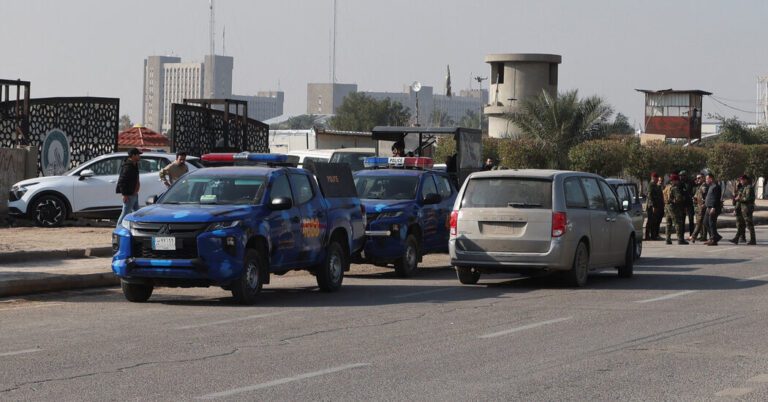
[ad_1]
A drone strike in Baghdad on Thursday killed a senior figure in an Iran-linked militant group that is part of Iraq’s security apparatus and two others, drawing sharp criticism from the Iraqi government as well as allied groups.
In an angry statement, an Iraqi government spokesman blamed the United States for the attack, calling it a “flagrant violation of the sovereignty and security of Iraq” and “no different from a terrorist act.”
The United States did not immediately acknowledge responsibility for the strike, but a Pentagon official confirmed the U.S. strike, saying that the United States continued to act to protect its forces in Iraq and Syria by addressing the threats they faced.
The attack struck near the logistics headquarters for the 12th brigade of the group, Harakat al-Nujaba, killing a brigade commander, Mushtaq Talib al-Saidi, and at least one other. The group, closely linked to Iran, was designated as a global terrorist organization by the State Department in 2019.
However, it remains part of Iraq’s Popular Mobilization Forces, a security organization that is in turn part of the government’s broader security forces.
In recent weeks the U.S. military has responded several times to more than 70 attacks by Iranian-backed armed groups in Iraq against U.S. bases and camps in Iraq and Syria. Those strikes twice targeted another Iraqi militia linked to Iran, Kataib Hezbollah, as well as several others.
However, the United States has generally avoided striking targets inside Baghdad in recent years because of its high population density.
Hamas released a statement condemning the attack on the Nujaba fighters. The Nujaba group has tried to aid Hamas in its fight against Israel and took responsibility for a drone strike in November that hit a school in the southern Israeli city of Eilat.
The killing of the operatives prompted calls from Iraqi political parties with links to Iran for the immediate withdrawal of all United States forces from Iraq. There are about 2,500 U.S. forces in Iraq, primarily in bases far from population centers.
Falih Hassan contributed reporting from Baghdad and Eric Schmitt from Washington, D.C.
[ad_2]